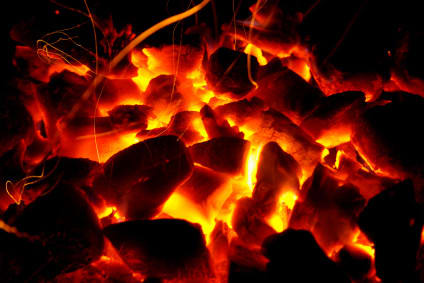It is a mental footnote for the Biblically knowledgeable – most of us not knowing exactly what to make of it. I am referring to the strange fact of Moshe’s k’vad peh, (speech impediment) – a seemingly trivial detail in the epic of Jewish redemption – yet one that Moshe constantly refers to in his dialogue with Hashem. Unlike King Menashe’s claim (cf. Sanhedrin 99b), we know that every detail has Divine significance, but in light of the bigger picture one may justifiably wonder just what that is.
In considering Moshe’s speech defect, let us raise six questions for your Shabbos consideration; we will address the final pair (and allude to the first pair)
- What was the precise nature of the flaw?
- How did it develop?
- Why did Moshe constantly reference it as being a fundamental challenge to his efficacy as a Jewish leader (Shemos, 4:10, 6:12, 6:30) – even after Hashem had assured him to the contrary?
- Why did Moshe not pray for its removal?
- Why did God manufacture Moshe with it?
- Why did God not heal it?
1. Most famously, Ran (Spain, 1320-1380), in his drashot (#3) posits the anti-demagogue theory: A leader’s magnetism and oratorical prowess may blind his followers from evaluating the message’s essential content. Hashem created Moshe with a speech impediment as a buffer against the claim that one man’s charisma charmed the Torah upon the masses. By deemphasizing the messenger, the Torah’s Divinity is affirmed (1).
2. Shelah references the famous midrash (cited by Rabbeinu Bechaye) that baby Moshe was suspected of being the Jews’ potential savior. After being put to the famous coals/crown test, Moshe who initially opts for Pharaoh’s crown, is steered by Gavriel to the coals – creating his kevad peh (but saving his life by assuaging Pharaoh’s fears).
Eighty years later, Moshe appears before that very Pharaoh; a delicious irony emerges when Pharaoh, who has heard that voice before, realizes that he has been the redeemer’s adopted grandfather. It is Divine sarcasm at its exquisite best. Man plans and God laughs; every so often the Master of the Universe reminds us that we are k’chomer b’yad hayotzer, silly putty in the Divine kiln, and we better get with the program.
3. To Maharal (Prague, 1525-1609), Moshe was a lot neshama (soul) and a little guf (body). Speech belongs to the body and not the soul (even as humans alone are capable of reflective speech). Hence the Talmudic statement (Nidah 31a) that the babe’s entrance into this world is ushered in with a slap on the mouth, highlighting his newfound humanity. Moshe’s neshama, so refined and deep, was simply unable to articulate the depth of his machshava (thought). For Moshe, the word profaned the thought. (Gevurot Hashem, 28)
4. For me, R. Itzele Volozhiner’s insight carries the day. Moshe was unable to pronounce certain letters. Some versions have a dalet on the list and others have the letter pei. Either letter was critical to articulate the code phrase pakod pakadeti (I shall remember Bnei Yisrael – Shemot, 3:16, Bereishis, 50) that authenticated Moshe’s credentials (Rashi, 3:18, cf. Ramban ibid that deal with the obvious question that anyone could have used the code). It turns out, Rav Itzele says, that the code was verified precisely because of Moshe’s speech impediment and his subsequent miraculous transcendence of it. His speech obstacle was necessary to make him the undisputed leader of the Jewish people.
Strength, our Rabbis teach, is an internal thing. They employ the paradigm of koveish es yitzro, one who overcomes his natural tendencies. Precious little of that battle is visible to the naked eye. Yet, does it not take enormous strength to resist the momentary whims; is it an easy task to not submit to our failings?
Moshe, transmitter of our Torah, struggles with speech, an area most critical for his exalted calling as Rabbeinu. Amazingly, he is still considered our greatest teacher. Is his stature not the product of a constant internal battle?
Moshe thus personifies a critical meta-lesson of Torah: Greatness is neither a birthright nor a default destiny. It is to be found only by those who dare to acknowledge their vulnerabilities and are willing to do the real work to overcome them.
May Hashem give us that tremendous strength and confidence to face the real challenges of our lives; within them lies the seeds of our greatness.
footnotes
1.Shelah (Prague, Tzfat, 1565-1630) questions this notion in light of the midrash that indicates that Moshe was healed davka at Matan Torah. (Yalkut Shimoni, 3:172)
Rabbi Asher Brander is the Rabbi of the Westwood Kehilla, Founder/Dean of LINK (Los Angeles Intercommunity Kollel) and is a Rebbe at Yeshiva University High Schools of Los Angeles
The words of this author reflect his/her own opinions and do not necessarily represent the official position of the Orthodox Union.
